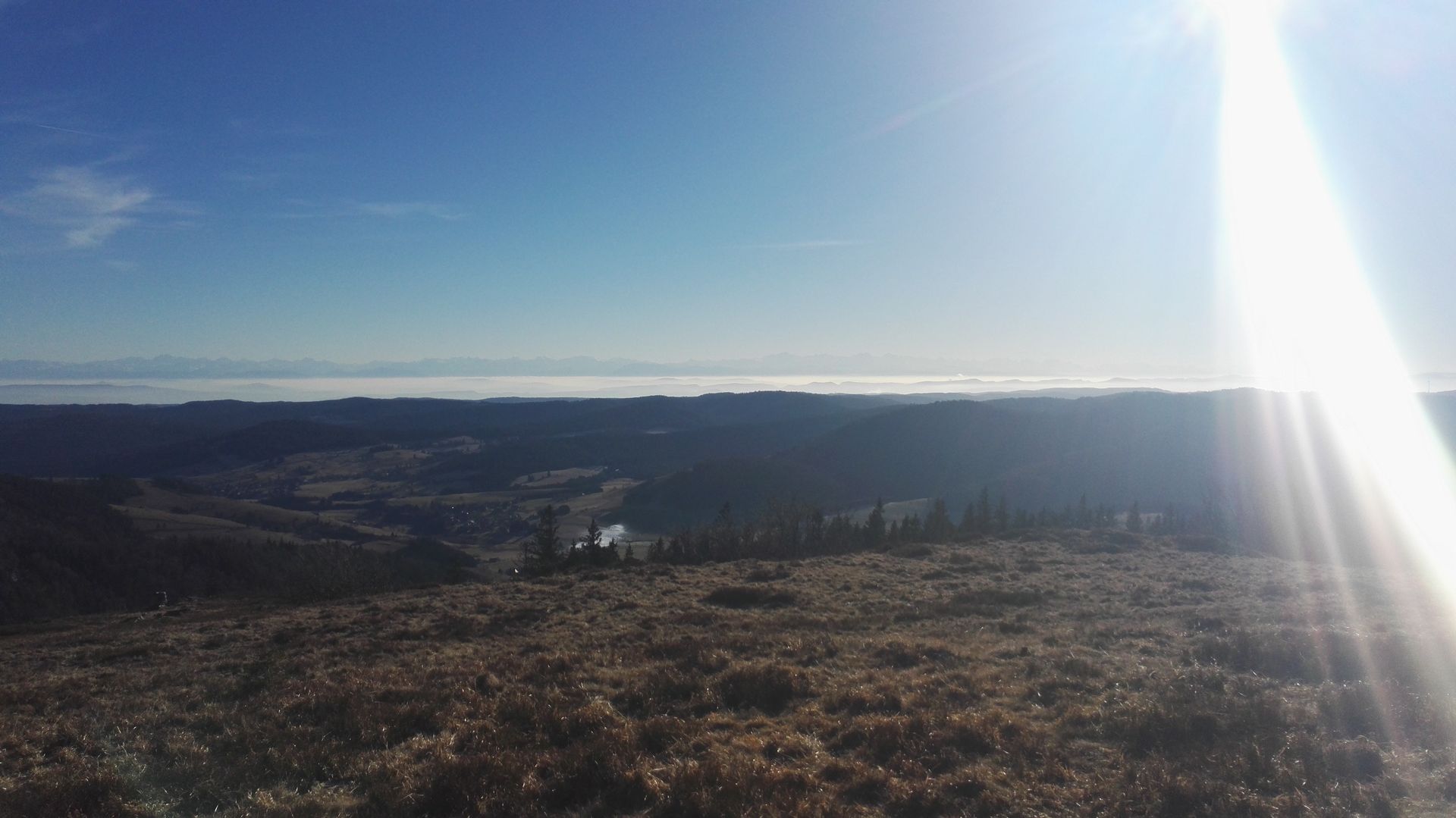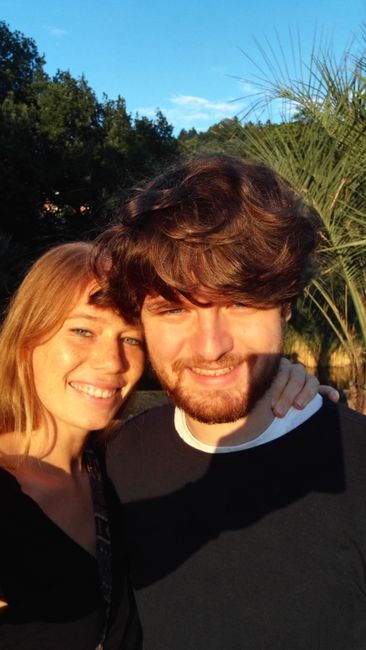Three of us in Cuba
Publié: 26.05.2019
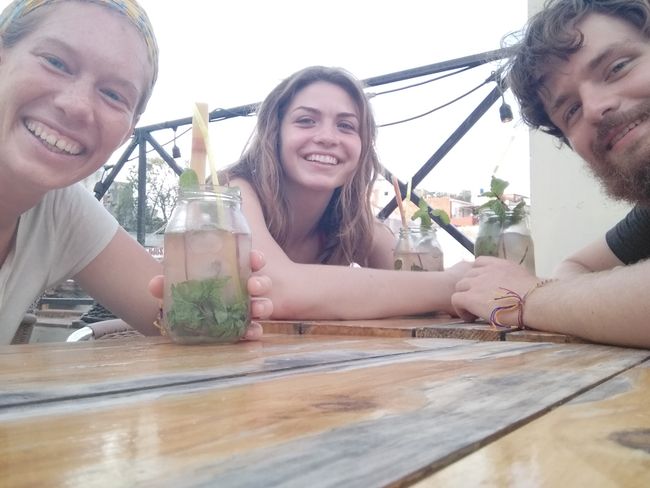
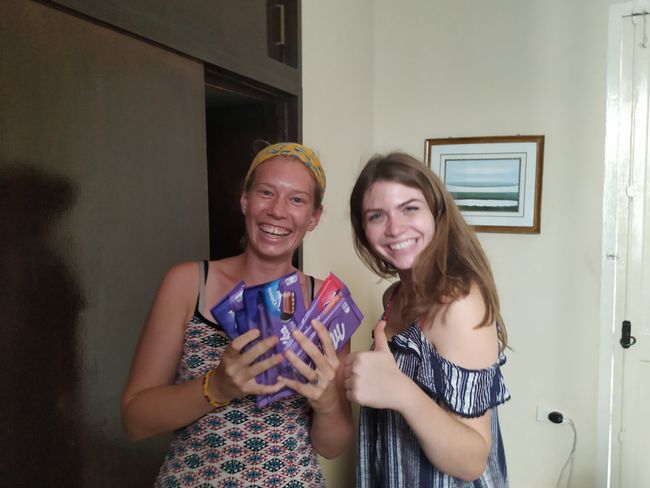
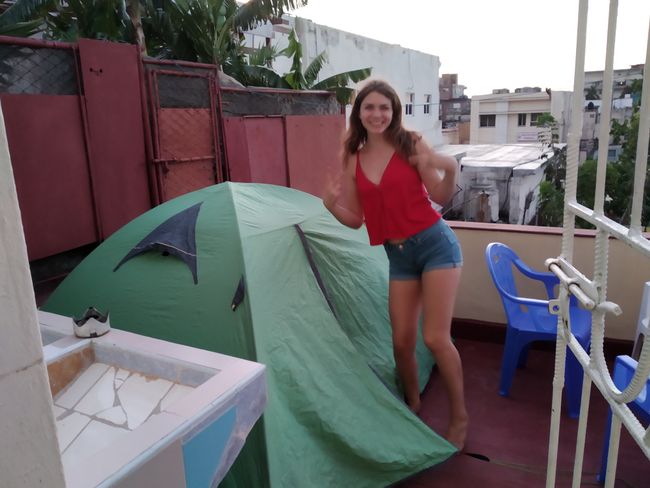
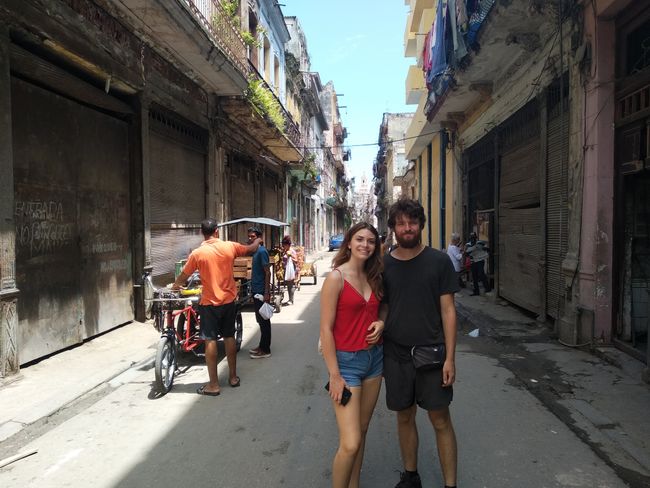
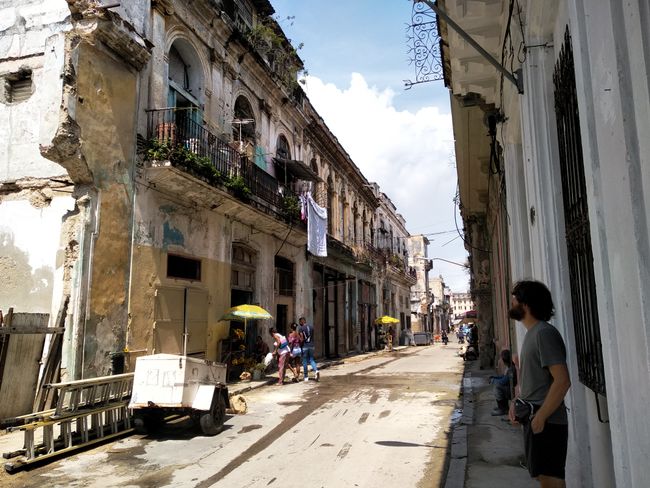
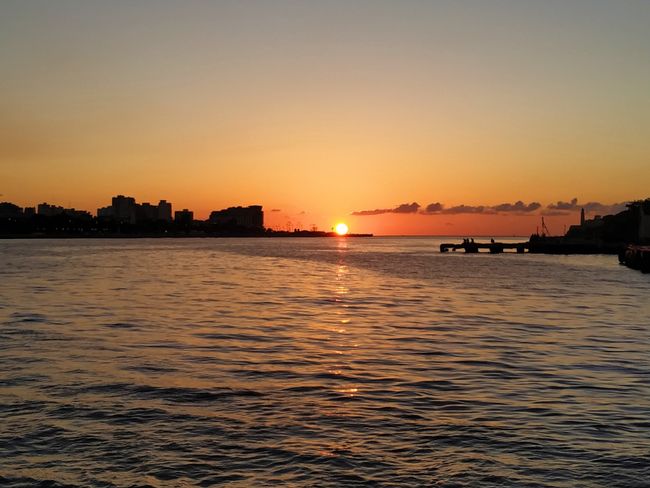
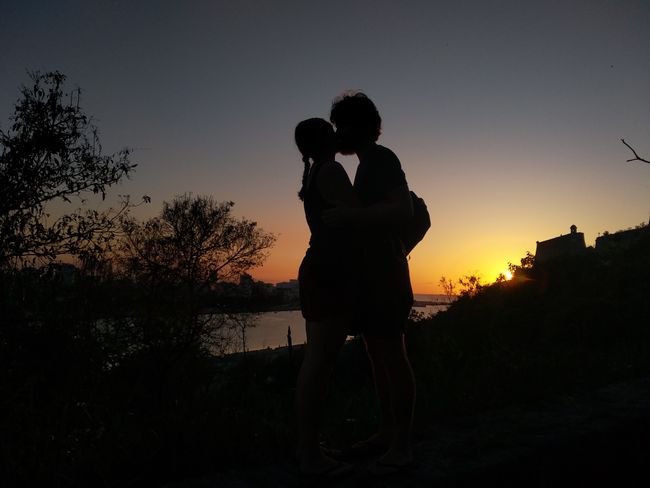
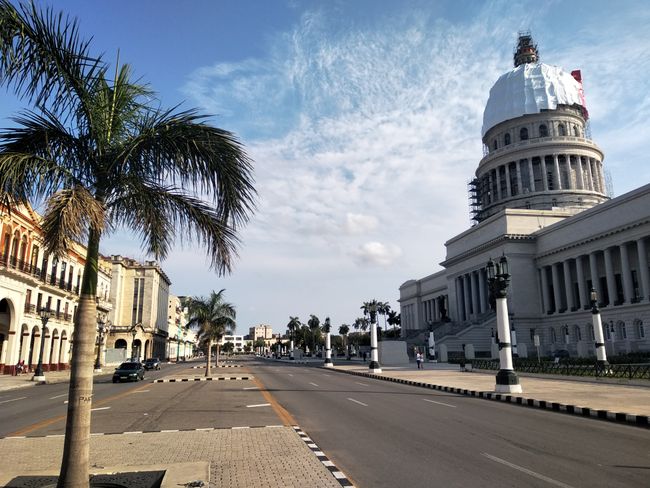
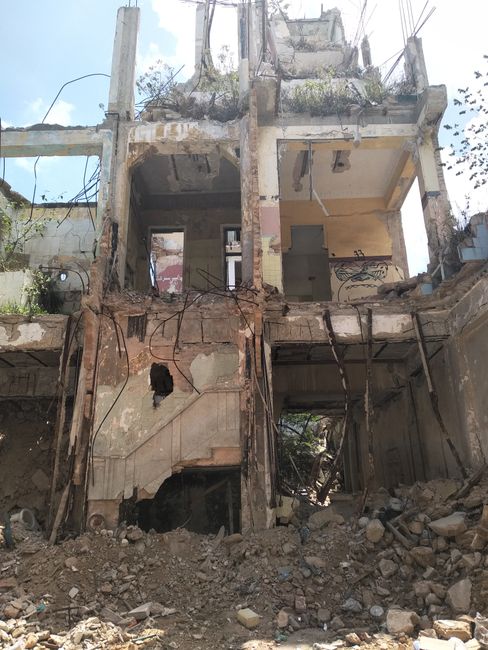
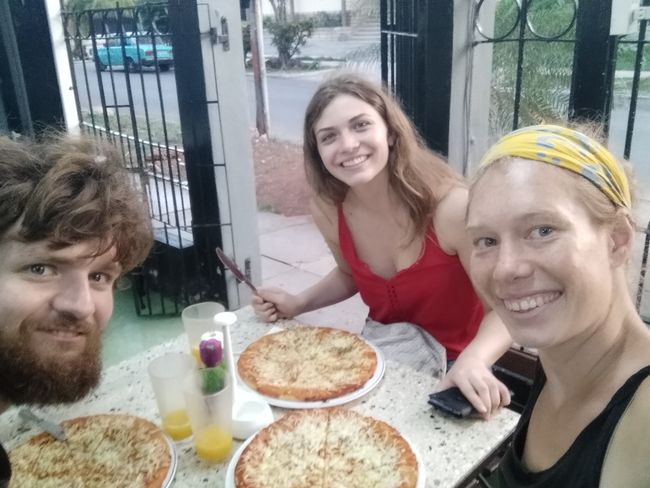
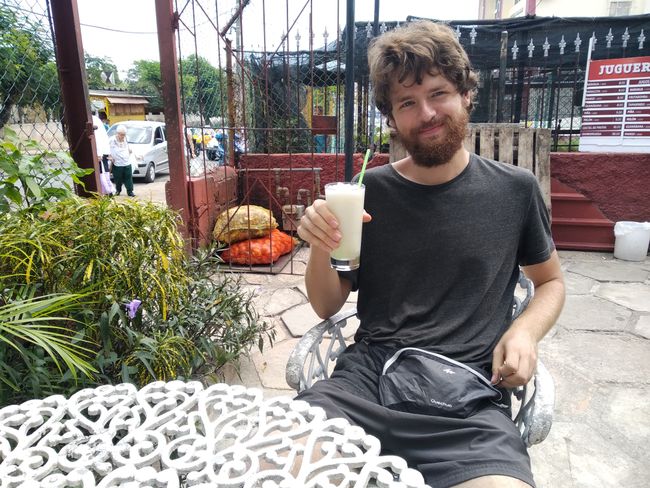
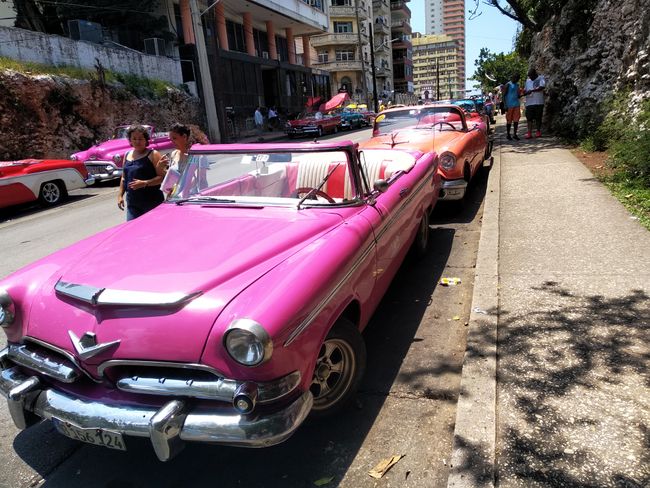
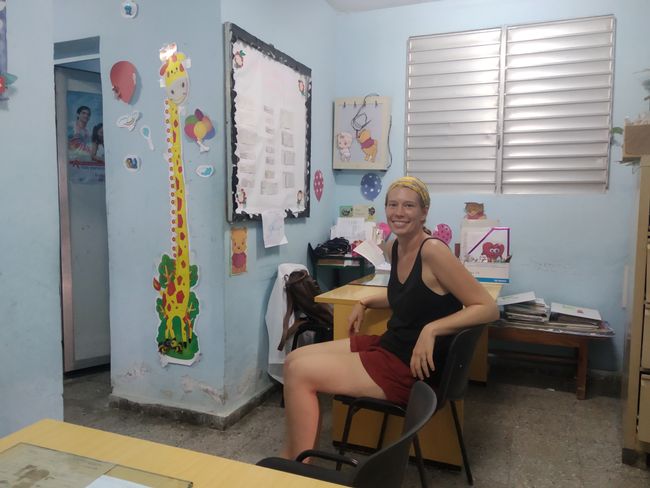
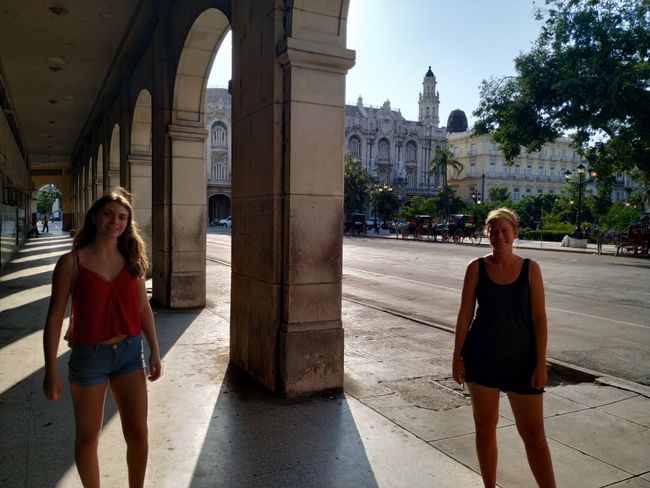
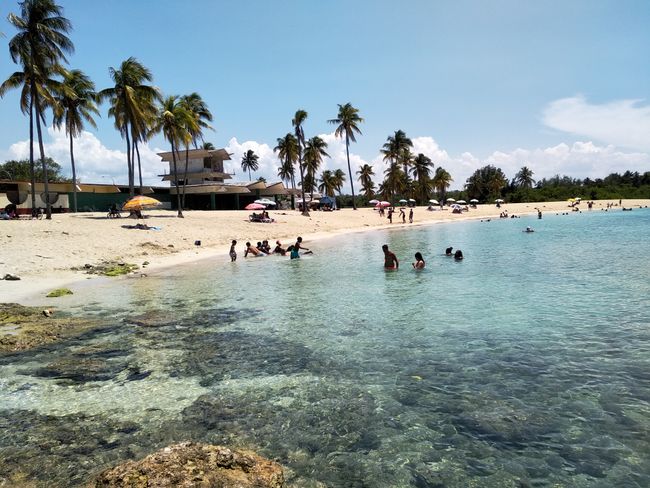
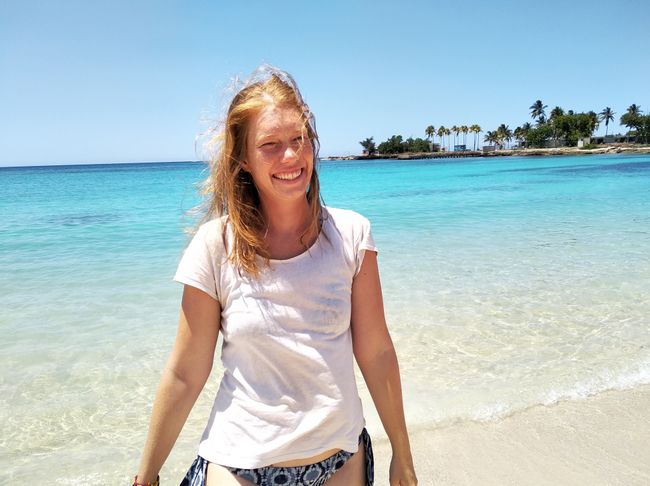
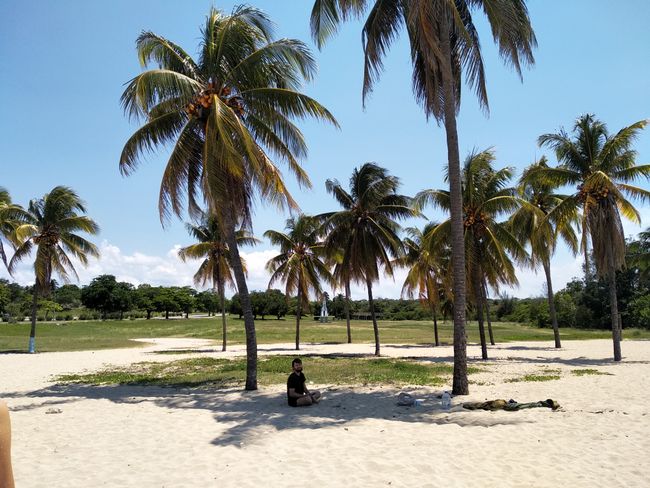
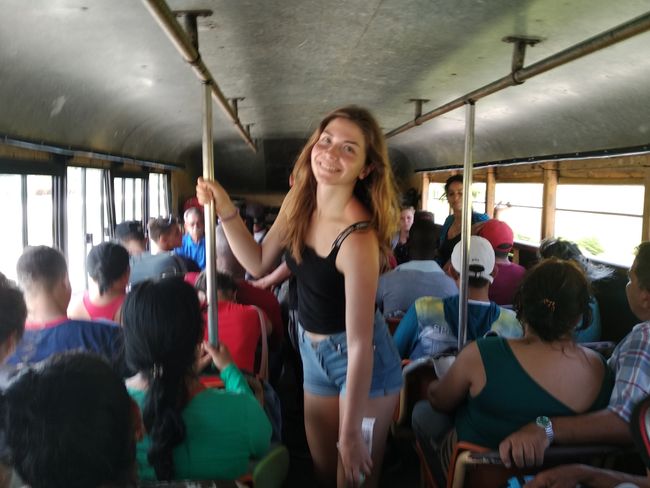
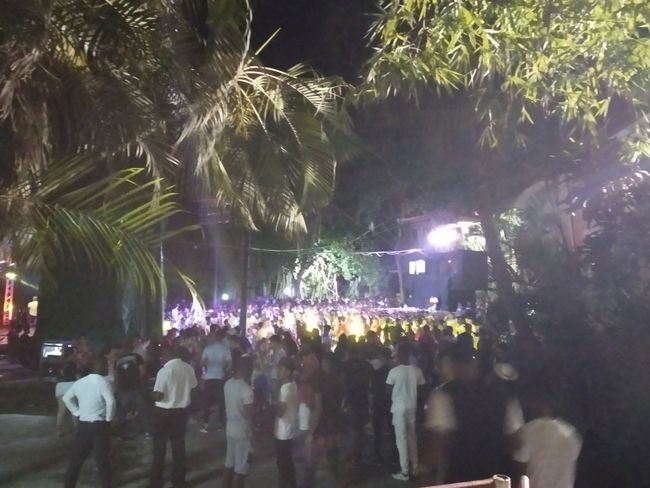
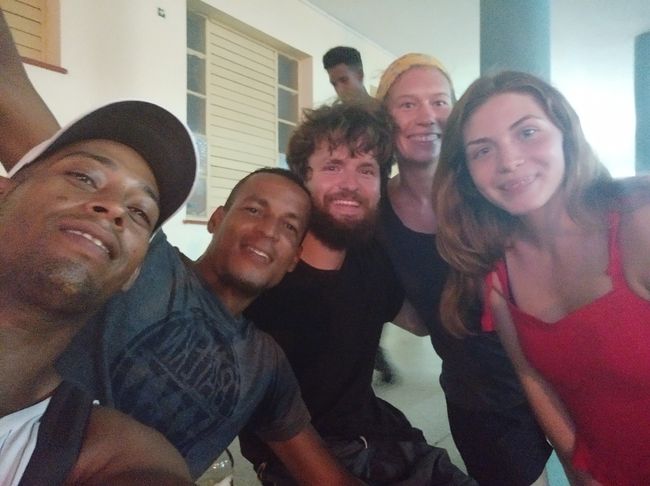
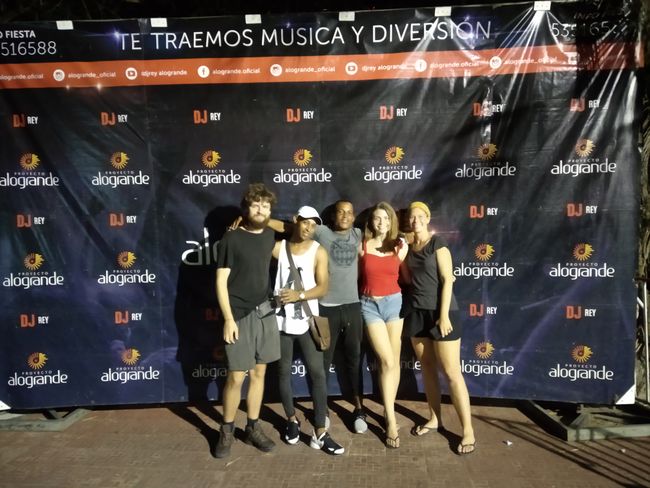
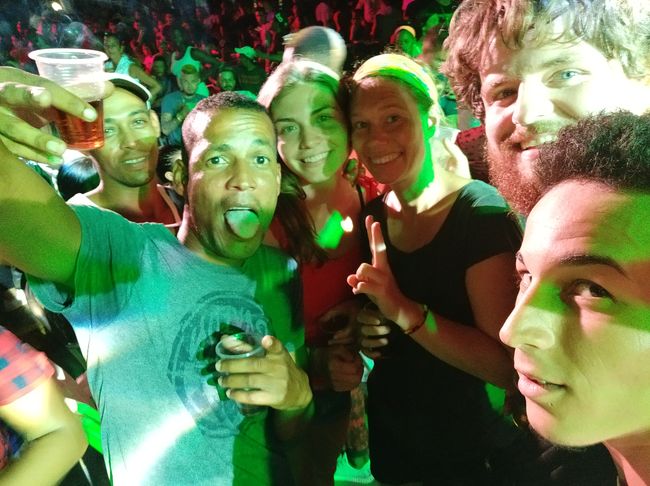
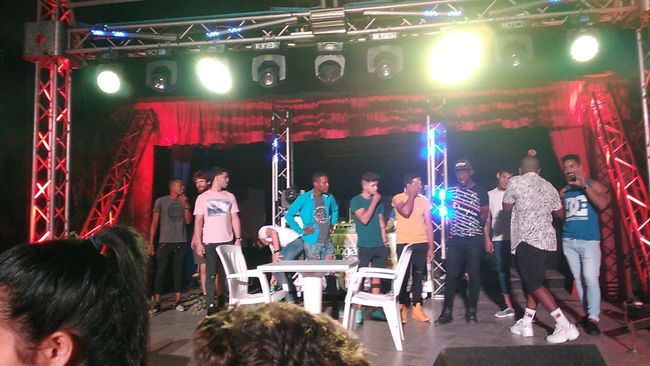
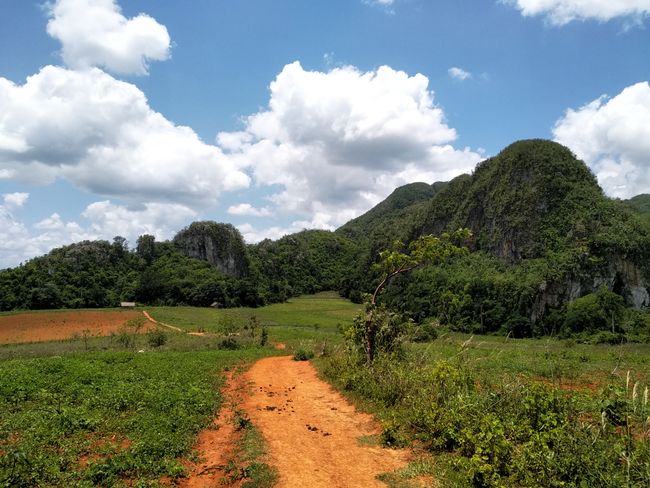
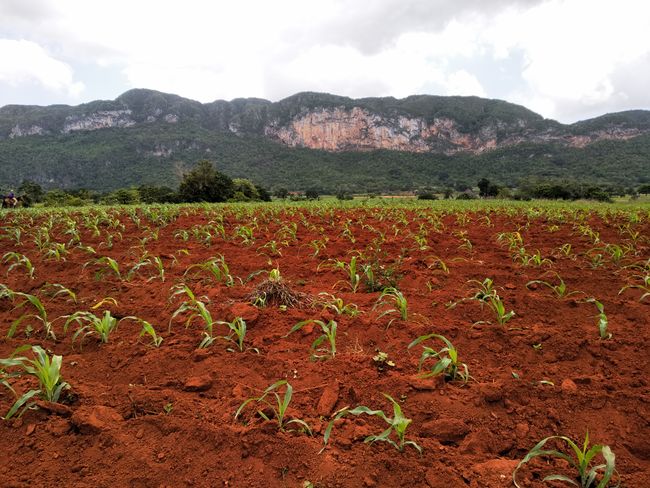
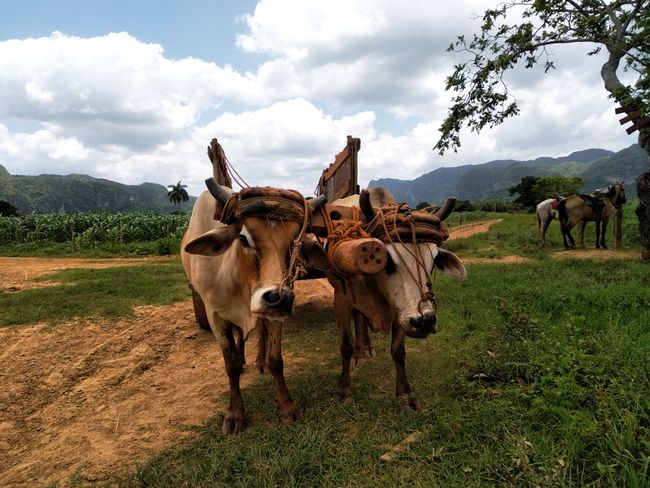
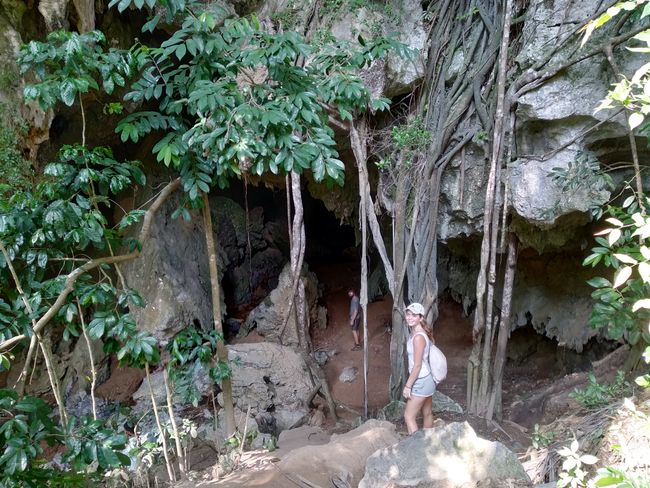
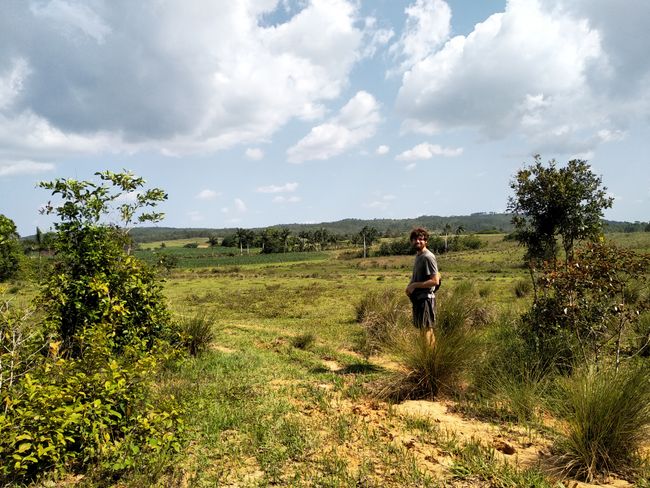
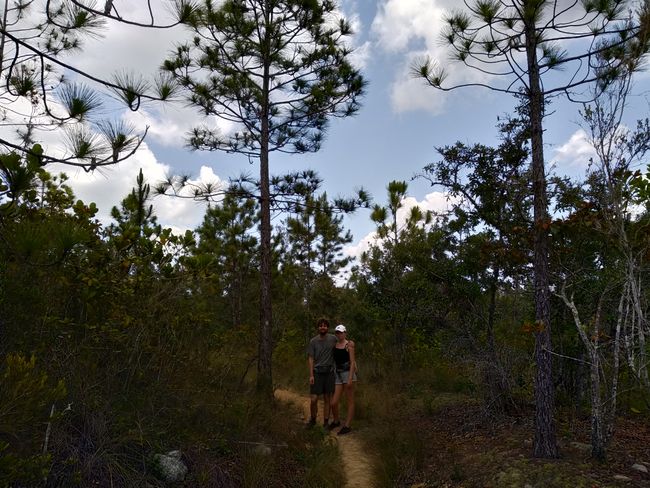
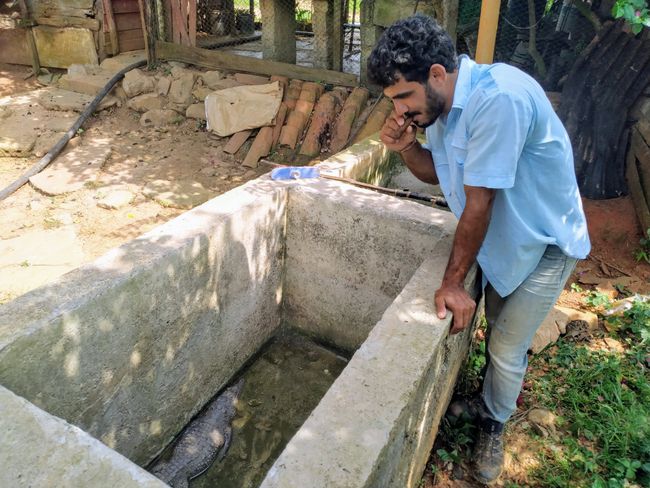
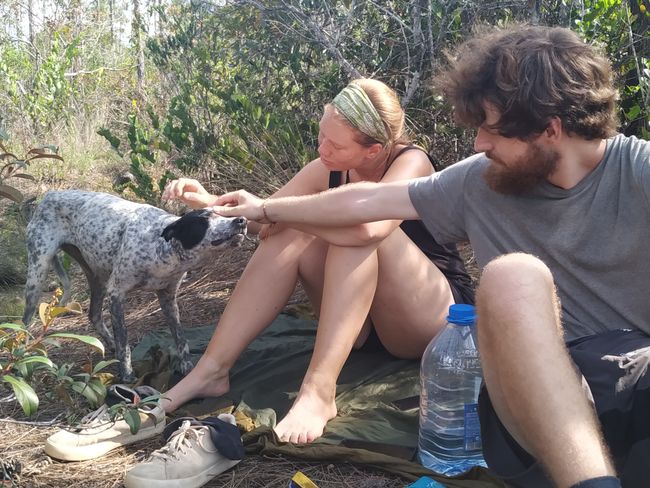
S'inscrire à la Newsletter
When we arrive in Cuba, it is slightly different from South America: old cars drive on the streets and the houses are partly run-down but still have a special charm, the heat remains the same. There are two currencies, the CUC, which is pegged to the dollar and has the same value, and the CUP, which has only a 1/25th of the value. It is interesting that a country has two currencies and the value differs so much. We had often heard before that it is difficult for tourists to get the local CUP and so we are curious how the money exchange at the airport will work. What nonsense! It is not a problem: we get both currencies and can exchange them at markets or cafeterias as we please. The next challenge is getting from the airport to Havana without spending 25 cuc on a taxi. Of course, everyone says there is only the taxi and no other option and of course we don't want to believe that. Coincidentally, we meet a Frenchman who is also clueless and we join forces to search for another means of transport. On the street we stick our thumbs in the air and after some time a car stops. It is a Cuban with a rented car who is on a visit to his homeland, but actually does not want to give us a ride. Jakob persists and we actually get to jump into the car. The man, however, is not talkative or enthusiastic, but he lets us out at a bus stop from where we can find our way to our accommodation by local bus. The city buses only cost 2 cents because they are financed by the state. Here you can see the extreme price differences: 25 dollars for a taxi or 4 cents for the bus. They are often crowded with people and not everyone always fits in.
In Cuba, you can either travel very cheaply or very expensively. Prices are kept extremely high for tourists, a tourist bubble in which most visitors move. We escape this bubble by mostly eating at small kiosks and cafeterias. There you can get coffee for 4 cents, freshly squeezed juice for 20 cents, and pizza for 50 cents. So our food is one-sided and often unhealthy, but unbeatably cheap. It is fun to escape the heat from time to time by enjoying a refreshing juice in the cafeterias and we often have conversations with many Cubans from the neighborhood. Ida, Jakob's sister, is coming to visit us for two weeks. We are very excited about the spontaneous visit and she even brings us some chocolate ;)
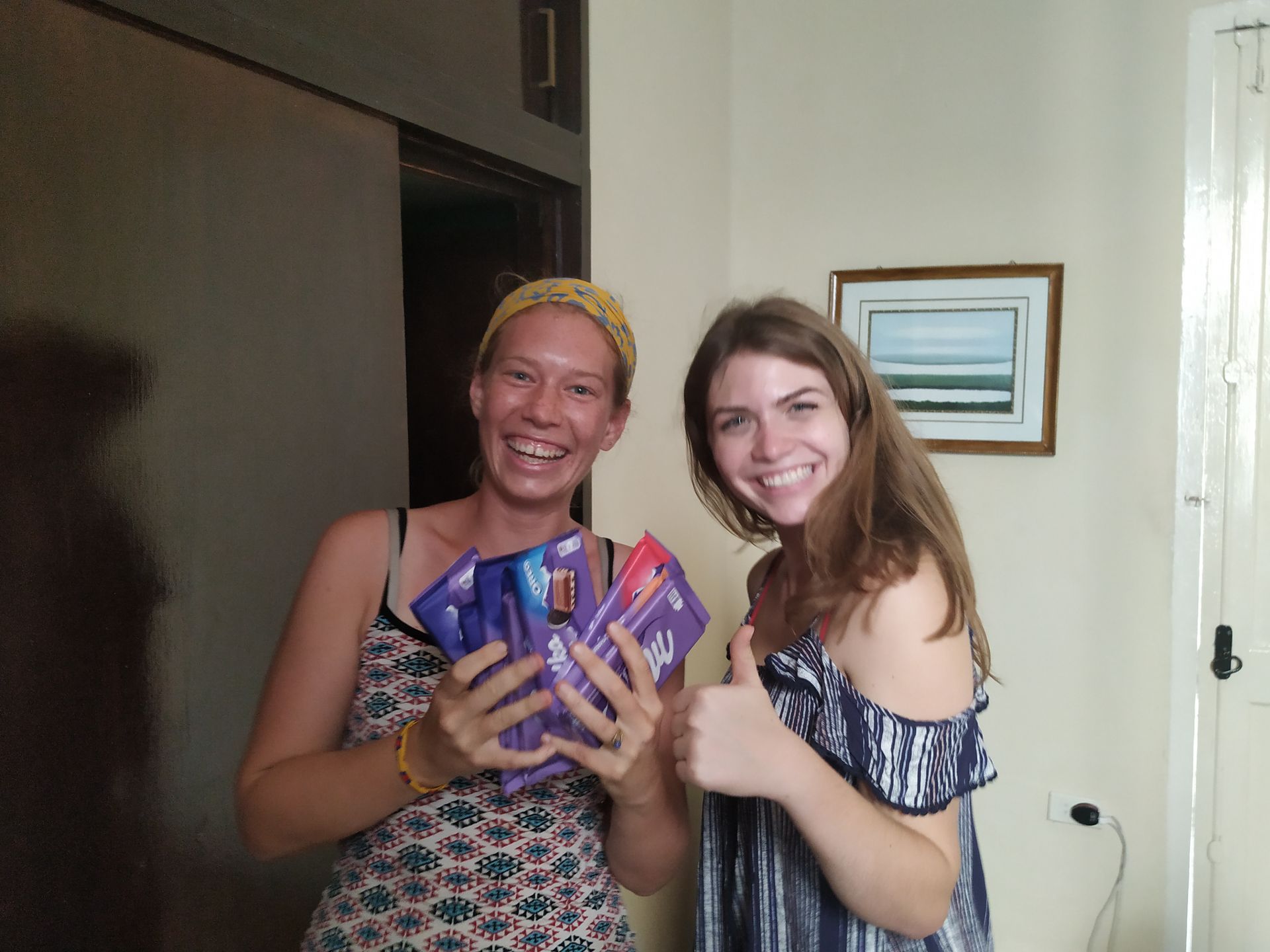
The three of us stroll through Havana's old town. In some areas, we see rich, fancy villas and in other neighborhoods, dilapidated houses that are not being restored but are still occupied. It is very exciting to walk through Havana's streets, the city is unique and a little bit like a museum. There are many old cars, even horse-drawn carriages and polished pink vintage cars, which (snobby) tourists with cigars in their mouths drive through the city. The cold mojito tastes better here than the beer and we stay in the city for a good week. We stay in a casa particular with our host Iliana, who takes care of us attentively, puts boiled tap water in the fridge for us every day, and has a cozy apartment with a balcony. When Ida joins us a few days later, we are allowed to set up our tent on the balcony, where she sleeps for two nights. One day we take a trip to the nearby beach Baracuanao near Havana, where almost only Cubans swim and coconut palms make us feel a bit uneasy as we seek shade under them, as more people actually die from coconuts than from sharks. But Ida doesn't think that's such a bad way to die.
One time when we are waiting at the bus stop, two women listen when they hear Miriam coughing. She has developed a strong cough since Colombia. The women are doctors and one of them, who comes from Bolivia, spontaneously takes us to her doctor's office. There she asks us to sit down and explains everything to us. In addition, Miriam has to inhale moist air through a straw, which should soothe her throat. The Bolivian doctor tells us that many Cubans become dependent on the free medication and so even when we are there, two junkies knock on the door. She also tells us about plastic surgeries that are paid for by the state and are used by many Cuban women. For foreigners, the prices for medication, on the other hand, are extremely high. Every opportunity is taken to make money from tourists and so the Bolivian student is not completely satisfied with the system either, as she is seen as a foreigner, although she has been studying and working in Havana for nine years, and so she gives us the medication as a gift.
Cuba is very safe and we enjoy being able to walk the streets without worry even at dusk. However, with many locals, you can sense that they don't react so positively to tourists and often receive hostile glances. On the other hand, some are very open and eager to talk with us. We don't like the separation between locals and tourists very much, and the fact that many tricks are used to squeeze money out of us. Often, we don't know if the person has ulterior motives in a conversation or if they are authentic and trustworthy. That's why we often remain suspicious, which is actually quite a pity.
For transportation across the island, there is only one bus line for tourists, which is extremely expensive. For us, it is not an option, so we try hitchhiking or taking the buses for locals. It takes a total of 4 hours until we have ridden out of Havana with two different city bus lines to the highway. There we meet some Cubans who also want to hitchhike. Unfortunately, the three of us don't fit in any car, but after several buses pass us by and several hours, a chicken bus stops for us. At first, we stand squeezed in the aisle, eventually we can take a seat on the hard benches, and we are happy about our cheap and interesting ride.
In the evening, we arrive exhausted in Pinar del Rio in the south of Cuba. We stay there for one night before continuing to the small village of Vinales. When we are hungry in the evening and looking for pizza, some young Cubans quickly "befriend" us, but as it turns out, only for appearance's sake. They want to drink mojitos with us in a bar. But when we arrive at the bar, there doesn't seem to be any mojitos and back on the street they become restless and try to pull us through the streets by our arm. We become suspicious because we have read about this scam on the internet, where Cubans quickly and heavily drink and in the end, the tourist has to pay the entire bill. When we try to break free, our host Yosmiel happens to pass by, whom we will be staying with for the night with his family. He immediately knows what's going on and takes us with him. The new 'friends' disappear instantly and now we are sure that they were not trustworthy. Together with Yosmiel and his brother, we enjoy a comfortable mojito. It tastes good, the tiredness fades away, and we decide to buy a bottle of rum and cola together. With this, the five of us sit in the university, where a festival with performances and music is taking place. We get along well and laugh a lot.
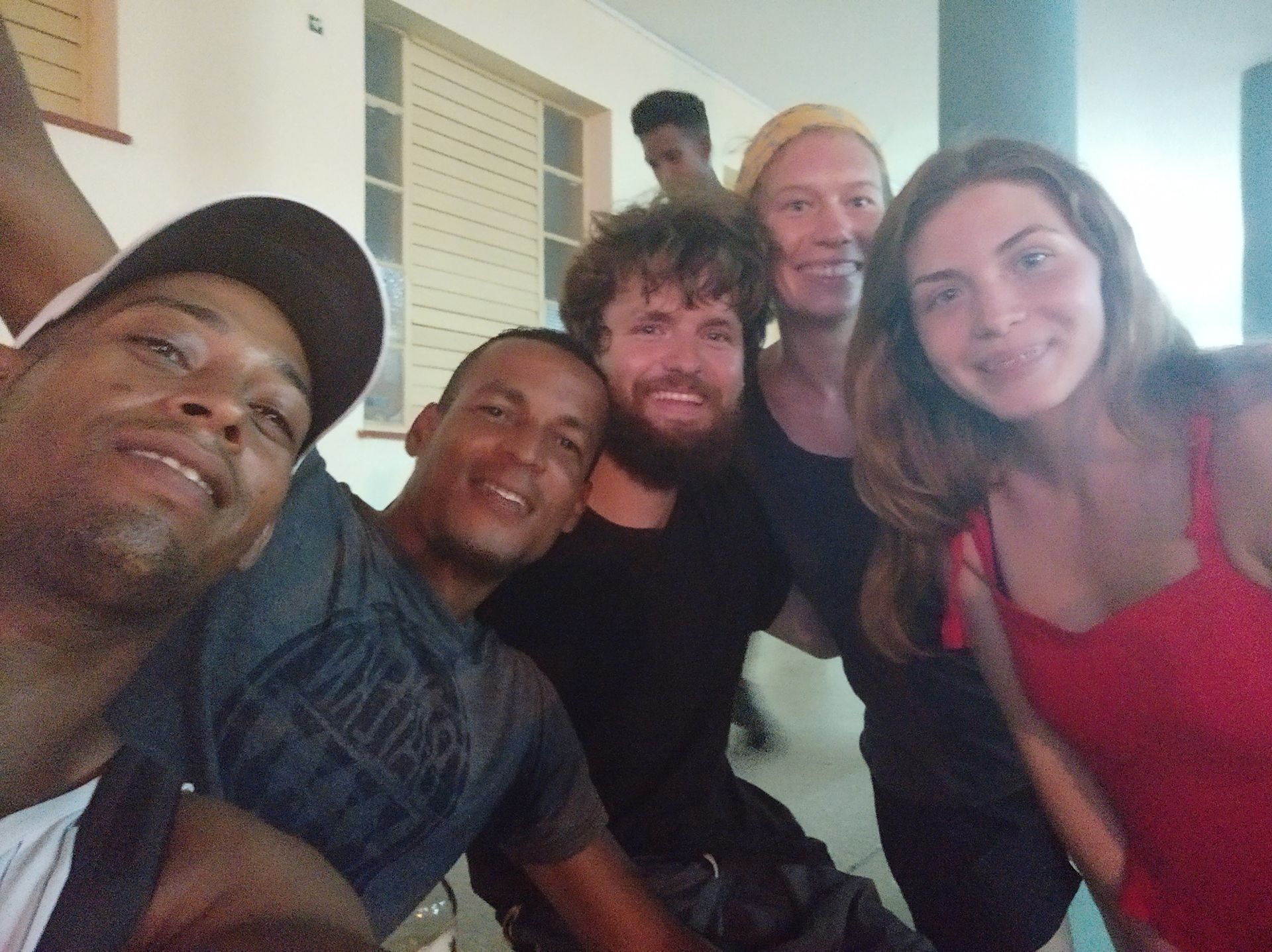
They ask us if we want to go to a big party and because of Ida's insistence, we go to the party, where of course, the rum supply of our hosts is immediately replenished. Normally, we would call it a night. Now we dance, it's crowded, there's a big stage with a DJ and a singer, and occasionally women on stage wiggle their butts vigorously to the music. At one point, Jakob and Yosmiel end up on stage, where they have to arm wrestle each other. The next day, due to the many rums and the long night, we take it easy and move on to Vinales, which is 30 km away.
We are glad to have overcome the hangover the day after tomorrow and start our hike. We walk through the Valle of Vinales, which shines in shades of red-brown and green, and we enjoy the lush vegetation. In total, we visit three caves, through one of which (Cueva de la vaca) we walk through and come out on the other side of the mountain. On another day, a drunken man with a wine bottle sits down with us in the morning, sings a song with a rough voice, and gestures to us to be silent, although we say nothing and he pretends to start crying. We don't know if that is part of the song or if he is trying to get more money out of us. The neighbor comes by, hugs the man, and gives us a significant look that probably means: don't take it too seriously. In the afternoon, a young Cuban shows us a crocodile that they keep in unworthy conditions in a concrete basin to eat it later and make a bag out of it. On another day, we hike in a different direction from Vinales, this time through pine forests and over small hills. Because Jakob wants to shorten the way back, we trudge cross-country through tall undergrowth, mud holes, and thorny bushes. Jakob thinks it was worth the adventure, and as compensation, Miriam and Ida get a cocktail.
S'inscrire à la Newsletter
Répondre
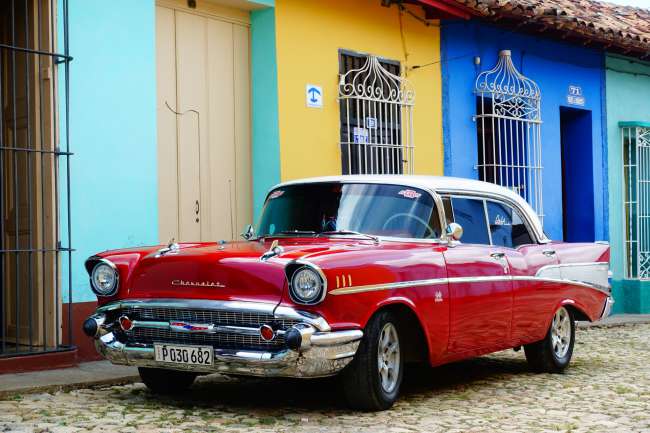
Rapports de voyage Cuba
